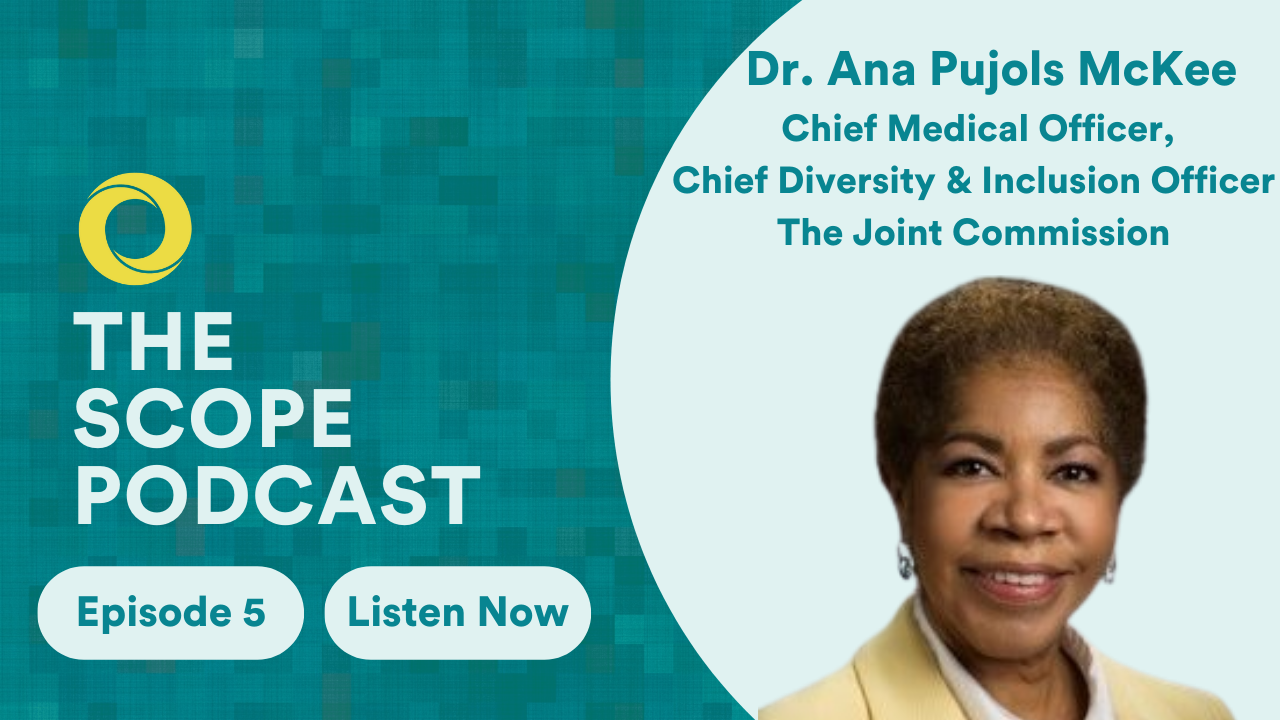PCCI’s Steve Miff on healthcare data and technology
Parkland Center for Clinical Innovation CEO Steve Miff joins us to discuss how healthcare data and tech can drive transformation.

Joining us today on The Scope is Dr. Ana Pujols McKee, the Chief Medical Officer and Chief Diversity & Inclusion Officer at The Joint Commission, which accredits over 22,000 healthcare organizations and programs in the U.S. and many more around the world. Dr. McKee leads physician engagement activities, including fellowships, and has developed numerous programs to support the important role of effective physician leadership and its potential to accelerate an organization’s quality improvement and patient safety initiatives.
A champion of health equity, Dr. McKee works to ensure all patients receive equal treatment. She advocates for health care providers to better understand and address implicit bias in health care. Prior to her current position, Dr. McKee served as Chief Medical Officer and Associate Executive Director at Penn Presbyterian Medical Center, University of Pennsylvania Health System, and as Clinical Associate Professor of Medicine at the University of Pennsylvania School of Medicine. She also served as chair of the Pennsylvania Safety Authority and Medical Director for the Philadelphia Health Department’s freestanding Ambulatory Medical Health Centers.
On today’s episode, we’re going to be focusing on health equity, how it relates to patient safety, and how both comprise a core component of true value-based care.
Topics Covered in Today’s Interview:
To learn more about what The Joint Commission is doing, follow along with them on LinkedIn and on Twitter.
Our thanks again goes out to Dr. Ana Pujols McKee for joining us on this vital topic.
Parkland Center for Clinical Innovation CEO Steve Miff joins us to discuss how healthcare data and tech can drive transformation.
Kaiser Permanente's Dr. Kate Koplan joins us to discuss her work in the field of population health and the importance of physician leadership.
Carrie Nixon (Nixon Gwilt Law) joins us to discuss advising healthcare innovators, mistakes they make, and the future of the industry.